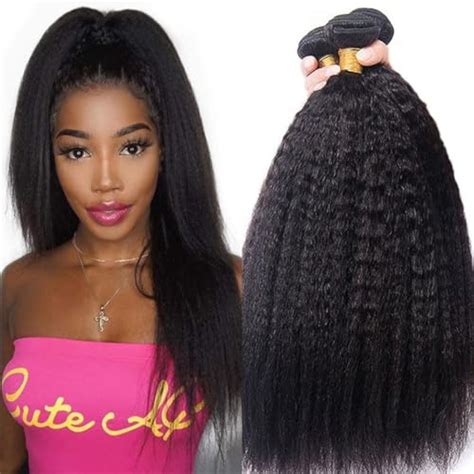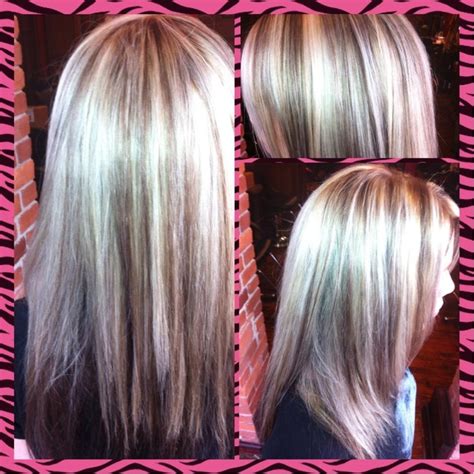Are you ready to ditch your flat, one-dimensional blonde hair for a more captivating and dynamic look? Lowlights are the answer! These darker strands interwoven into your blonde locks add depth, dimension, and a touch of sultry sophistication. Get ready to turn heads with this head-turning hair trend.

Benefits of Lowlights
Lowlights offer a multitude of benefits for blonde tresses:
-
Depth and Dimension: Lowlights create a contrasting effect that adds depth and dimension to blonde hair, making it appear fuller and more voluminous.
-
Versatility: Lowlights can be customized to complement any blonde shade, whether it’s icy platinum, creamy honey, or sun-kissed gold.
-
Softens Facial Features: Strategically placed lowlights can help soften facial features, enhancing bone structure and creating a more balanced look.
-
Low Maintenance: Unlike highlights, lowlights require less maintenance as they grow out more subtly, making them a hassle-free way to update your blonde.
Choosing the Right Lowlight Color
Selecting the perfect lowlight color is crucial for achieving a harmonious result. Consider these guidelines:
-
Natural Shades: Opt for lowlight colors that resemble your natural hair color or are a few shades darker. This creates a cohesive and natural-looking effect.
-
Cool vs. Warm: If your blonde is cool-toned, choose lowlight colors with ash or beige undertones. For warm-toned blonde, try lowlights with golden or caramel accents.
-
Skin Tone: Warmer skin tones look great with golden lowlights, while cooler skin tones complement ash or espresso tones.
Techniques for Adding Lowlights
There are two primary techniques for adding lowlights to blonde hair:
-
Foiling: This method involves separating sections of hair and applying lowlight color within foil packets. It allows for precise placement and controlled lightening.
-
Hand-Painting: With this technique, lowlights are hand-painted onto the hair using a brush. It creates a more diffused and natural-looking result.
Lowlight Placement Strategies
The placement of your lowlights can dramatically affect the overall look:
-
Face-Framing: Add lowlights around the face to brighten your complexion and create a lifted effect.
-
Root Smudging: Darkening the roots with lowlights adds depth and minimizes the appearance of regrowth.
-
Balayage: Create a subtle and sun-kissed effect by painting lowlights freehand in a V-shape pattern.
-
Reverse Ombre: Gradually lighten the lowlights from the roots to the ends, creating a dimensional and edgy look.
Common Mistakes to Avoid
To ensure your lowlight journey is a success, steer clear of these common pitfalls:
-
Over-lightening: Avoid lifting the lowlight color too much as it can damage your hair and create a harsh contrast.
-
Insufficient Blending: Ensure your lowlights are seamlessly blended into your blonde hair to avoid a choppy appearance.
-
Too Dark: Avoid using lowlight colors that are significantly darker than your natural hair color, as it can overwhelm the blonde.
-
Over-Processing: Follow the processing times and instructions carefully to prevent over-processing and damaging your hair.
Comparison: Pros and Cons
Here’s a side-by-side comparison of the pros and cons of lowlights in blonde hair:
| Pros | Cons |
|---|---|
| Adds depth and dimension | Requires maintenance |
| Versatile and customizable | Can be time-consuming |
| Low maintenance | Can be expensive |
| Softens facial features | May not be suitable for all hair types |
Frequently Asked Questions
Here are answers to some of the most common questions about lowlights in blonde hair:
-
How often should I get lowlights?
– It depends on the desired effect and rate of hair growth. Typically, touch-ups are recommended every 6-8 weeks. -
Can lowlights damage my hair?
– Any chemical hair treatment has the potential to damage hair, but with proper care and maintenance, lowlights can be applied without significant damage. -
Can lowlights be added to natural blonde hair?
– Yes, lowlights can be added to natural blonde hair to create depth and dimension without drastically altering its color. -
Can lowlights be toned?
– Yes, lowlights can be toned to enhance their color or neutralize any unwanted brassiness. -
How much do lowlights cost?
– The cost of lowlights varies depending on the salon, hair length, and desired effect. On average, it can range from $50 to $300. -
Are lowlights suitable for all hair types?
– Lowlights can be suitable for most hair types, but it’s best to consult with a professional hairstylist to ensure they are right for your individual hair condition. -
Can lowlights be removed?
– Lowlights can be removed, but it typically requires a combination of color correction and chemical treatments, which should be performed by a professional. -
Are lowlights a good way to cover up gray hair?
– Yes, lowlights can be effectively used to blend in gray hair, creating a more youthful and natural appearance.
Conclusion
Lowlights in blonde hair are a transformative technique that can breathe new life into your tresses. By adding depth, dimension, and a touch of intrigue, lowlights bring out the best in blonde shades, whether you’re a natural blonde or a color-treated client. Embrace this hair trend and prepare to unleash a head-turning look that will turn heads and boost your confidence.
Additional Tables:
| Lowlight Placement Techniques | Effect | Suitable Hair Types |
|---|---|---|
| Face-Framing | Brightens complexion, lifts features | All hair types |
| Root Smudging | Minimizes regrowth, adds depth | Fine to medium hair |
| Balayage | Sun-kissed effect, dimensional | All hair types, especially long hair |
| Reverse Ombre | Edgy, high-contrast | Thick to coarse hair |
| Lowlight Colors for Blonde Shades | Complementing Blonde Tones |
|---|---|
| Ash | Icy platinum, champagne blonde |
| Beige | Warm blonde, honey blonde |
| Golden | Strawberry blonde, golden blonde |
| Espresso | Dark blonde, caramel blonde |
| Maintenance for Lowlighted Blonde Hair | Frequency | Purpose |
|---|---|---|
| Tone or Glazing | Every 4-6 weeks | Enhance color, neutralize brassiness |
| Deep Conditioning | Weekly | Repair and strengthen hair |
| Trim Split Ends | Every 6-8 weeks | Remove damaged hair, maintain length |
